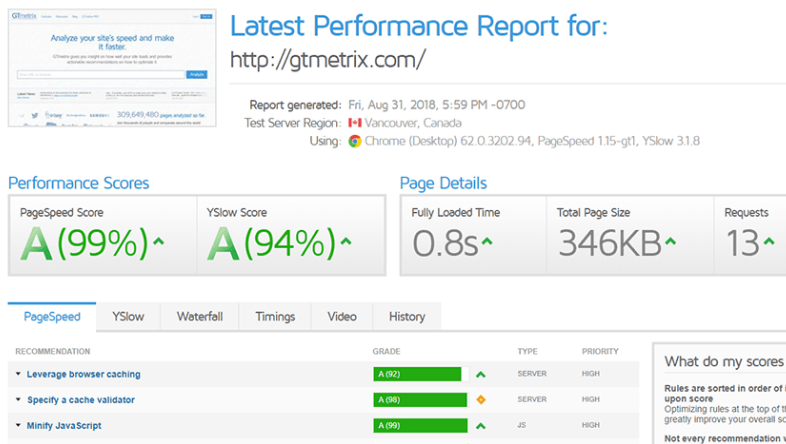Siteground VS Bluehost: Which One is Faster & Better?
Introduction
SiteGround and Bluehost are two of the most popular web hosting services in the world. They both offer a wide range of features and plans to fit any budget, but they also have distinct differences that could make one better than the other depending on your needs. In this article, we’ll compare SiteGround and Bluehost head-to-head to see which one is faster and better overall for your website.
Introduction
Siteground and Bluehost are two of the most popular web hosting providers in the world. They each offer plenty of useful features, but which one is best? In this article, we’ll compare some key factors to help you decide which company is right for your needs.
We’ll start by explaining what each company offers and outlining some pros and cons for each. We’ll then look at more specific details like speed, customer support, data centers and more to determine which host offers you the best experience overall.
Siteground vs Bluehost: Cost vs Features
Both SiteGround and Bluehost offer comparable pricing plans with shared hosting starting from $3/month and going up from there depending on how much resources you need (e.g., RAM). However, siteground has an edge here because it charges less than bluehost does for most of its plans:
SiteGround VS Bluehost: In A Nutshell
SiteGround is a better choice for most people. It’s faster, more reliable and has more features like free SSL certificates and unlimited storage.
Bluehost is cheaper but its performance is not as good as SiteGround’s. Their customer support is also not as great either.
SiteGround is a better choice for most people. It’s faster, more reliable and has more features like free SSL certificates and unlimited storage. Bluehost is cheaper but its performance is not as good as SiteGround’s.
SiteGround VS Bluehost: Pricing
- SiteGround is more expensive than Bluehost
- SiteGround has better refund policy than Bluehost
- SiteGround offers a free domain name with an annual plan, while Bluehost offers a free domain name with a 2-year plan.
SiteGround also offers one free SSL certificate with a 2-year plan, while Bluehost offers two free SSL certificates with a 3-year plan.
SiteGround also offers a free site migration with an annual plan, while Bluehost does not offer this feature. SiteGround also has an updated affiliate program that offers higher commissions than Bluehost, which can be beneficial for webmasters who want to monetize their sites.
SiteGround VS Bluehost: Features
SiteGround VS Bluehost: Features
SiteGround has a better features list in general. SiteGround also has more add-ons available to purchase, which can be helpful if you want to add extra functionality like Jetpack or an SSL certificate. Bluehost only offers one additional add-on: Advanced WordPress Protection, but it’s relatively expensive.
If you’re looking for the cheapest way to go with either provider, then SiteGround is still your best choice because even their lowest plan includes unlimited domains and databases plus support for one custom domain (as opposed to two domains on Bluehost). In addition, their customer service team is much stronger than Bluehost’s; they rank much higher in customer reviews across many different websites.
SiteGround also offers a free domain and a free website migration. Bluehost doesn’t have any of these features, which can be very helpful if you’re just starting out with your first site. But both providers offer 30-day money-back guarantees, so you don’t have to worry about being stuck with something that you don’t like.
SiteGround VS Bluehost: Reliability & Speed
Both SiteGround and Bluehost are reliable hosting providers. SiteGround has a better uptime and speed, while Bluehost is slightly faster.
SiteGround’s uptime is 99.99% while Bluehost’s is only 99.96%. That doesn’t mean much, but if you’re looking for the fastest possible load times and reliability, choose SiteGround as your provider.
SiteGround also has slightly better security features than Bluehost does: it offers free daily backups and 24/7 monitoring software that detects suspicious activity on your website in real time (and lets you know about it!).
SiteGround VS Bluehost: Customer Support
SiteGround has better customer support. The team is well-trained, friendly, and helpful. You can get in touch with SiteGround via a phone call or an online chat. They have an extensive knowledge base on their site that covers almost any question you might have about your WordPress site or hosting account.
Bluehost’s customer support is not as good as SiteGround’s. They have a limited number of agents working at any given time, so you may not get to talk to them right away when you submit a ticket (or even after waiting for hours). Their knowledge base leaves much to be desired as it doesn’t cover many common issues people face while using WordPress and Bluehost hosting together (for example: how to install WP Rocket on Bluehost). Their forum isn’t much better either; some posts are outdated and don’t provide solutions anymore since they were written several years ago!
If you care about reliability, speed, and support, use SiteGround.
If you care about reliability, speed, and support, use SiteGround.
It’s faster than Bluehost—in both load times and overall performance. It also has better uptime and fewer outages. The difference is small enough that it won’t matter to most people—but if you run a business that depends on your site being up all the time (like an e-commerce site), it could mean the difference between making money or going broke.
SiteGround also offers more features than Bluehost does: free migration services from other hosts; better customer support; and a broader array of WordPress plans (including one with unlimited bandwidth).
Conclusion
Overall, we recommend SiteGround over BlueHost. It has better features, more reliable servers, faster page load times and better customer support. Its pricing is also very competitive compared to other providers in the market and offers a great value for money. If you care about reliability, speed, and support then SiteGround is probably your best option since it has been around for over 15 years now.

